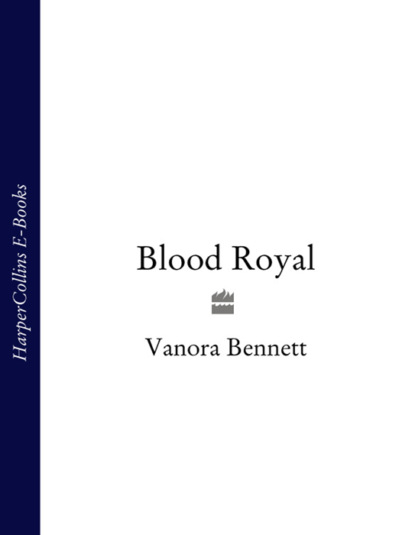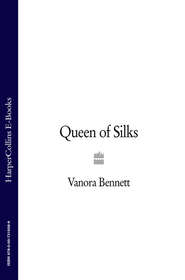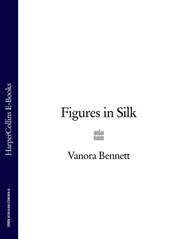По всем вопросам обращайтесь на: info@litportal.ru
(©) 2003-2024.
✖
Blood Royal
Настройки чтения
Размер шрифта
Высота строк
Поля
Once he was satisfied on all these counts, he would marry Princess Catherine and make peace.
‘Impossible,’ Christine said flatly.
‘Of course it’s impossible,’ Jean agreed. ‘He must know that. How can he expect anyone to think he’s negotiating in good faith? If we said yes, there’d be nothing left of France.’ He rested weary head in hands. ‘Still,’ he added bitterly, ‘we are supposed to say yes, somehow. The Queen’s in charge. And this is what she says she wants.’
During the winter, the King of France recovered from his illness enough to take negotiations with the English into his own hands. The eventual French counter-offer, made the next spring, was more lands in the south, bordering English holdings in Aquitaine, and 800,000 crowns, with dresses, jewels and furniture for Catherine.
‘It’s more than he deserves,’ Christine said, as ambassadors set off in both directions.
‘It still won’t work,’ Jean replied.
It didn’t. The French ambassadors were sent back from London. The English ambassadors returned from Paris without agreeing to anything.
On 7 April 1415, Henry of England wrote to the King of France to say again that he was so determined to have peace with France, and to marry Princess Catherine, that he was willing to settle for less than what justice demanded. But why, he added, all injured innocence, had the King of France sent ambassadors to London who had told him that they didn’t have full powers to agree to all England’s demands? Could the French King kindly hurry and send some proper ambassadors?
On 12 April 1415, Henry of England called a council meeting that placed England on a war footing. He set the rates of pay for soldiers in an expedition to an unnamed location in France.
On 15 April 1415, before King Charles of France could have had time to reply to his letter, Henry of England wrote again. He said he was sending a safe conduct for a new French embassy of 360 people. He demanded they come quickly, so that the peace he so desired could swiftly take shape.
Jean de Castel tried to avoid being part of the French delegation. ‘I don’t want to be humiliated,’ he said. But Christine reasoned with him. She told him he must do all he could to avoid a war. She used the word ‘hope’. She ignored the set look on her son’s face. He left with the ambassadors on 4 June.
Jean de Castel was bone tired at the back of the horse train, jiggling along from one inn to the next, through dreary English villages, over potholed roads. The French visitors had gone from Dover to London, where they’d been told the King of England had left for Winchester. The Archbishop of Bourges’ pink-and-white face had gone red at the news, but he knew his duty. They’d turned right around and followed the King south.
They’d had to wait an hour at the gate at Winchester, watched by curious, speculative eyes. There was a lot of traffic leaving the city. The gatemen were letting out cart after cart, loaded with arrows and longbows, tents and lances. They wouldn’t let the Frenchmen in until the carts were all gone. ‘Where is all that going?’ Jean de Castel had asked a gateman; his English was good enough to talk to townspeople. The man laughed roughly. ‘To Southampton,’ he said, with rude good humour; ‘like the King, once he’s done with you lot.’
The King of England was staying in the palace of his uncle, Bishop Beaufort. The leading French ambassadors were put up there too, but there was no room for the retinues; the palace was too full of men-at-arms, obviously preparing for war on France.
Jean found a bed at an inn. There was a green outside. He watched the evening archery practice: all those undernourished yeomen deforming their skinny bodies, struggling to pull back the hundred-pound weight of the string, twisting and crunching their backs. They never healed. They lived with the pain of their bows. They had to. Archery practice was the law in England. Then he watched the men who’d been practising go marching out of town, in the direction of the coast. ‘Off to Southampton?’ he asked. They roared cheerfully back. Of course they were going to Southampton. The innkeeper wouldn’t talk to him, but after an hour sitting quietly in the inn, listening to what people were talking about all around him, Jean knew enough to be sure that six thousand men-at-arms and fifty thousand archers would be taking ships from Southampton any day.
When he rejoined his party at the palace, Jean found them as shocked as he was. They had been greeted by Henry of England’s uncle, Henry Beaufort, the Bishop of Winchester. Bishop Beaufort’s welcoming words had consisted of no more than a brusque warning: ‘You have to finish your business and leave before the end of the week.’
The French delegation was trapped in its futile peacekeeping role. The Archbishop of Bourges’ sermon that night was, ‘Peace to you and your house.’ But Henry of England – who turned out to be tall and wiry and mouse-coloured, with big girlish eyes fringed with long eyelashes set in a hard, bony frame – sat through the speech blank-faced, drumming his fingers against his book of hours.
The gathering in the council chamber the next day was no warmer.
Henry of England didn’t come. Bishop Beaufort (who also had big, odd, knobbly Lancaster features in a pinched face) presided. He strode in at the head of a bristling train of guards. He didn’t bother overmuch with pleasantries. In a voice as thin and hard as his face, he set out a new list of impossible demands. England wanted its differences with France settled by the end of the summer. That was the cut-off point for France to hand over all the lands England wanted. Princess Catherine, a treasure trove of jewels, and 600,000 crowns, were also to be delivered to Calais by Michaelmas.
Bishop Beaufort was a calm negotiator. He sat down and examined his nails when he’d finished. He pretended not to hear the murmurs of dismay from around the table. He only shook his head and let a contemptuous little smile play on his lips when Bourges tried to make the Bishop of Lisieux explain why that would be quite impossible; when Lisieux deflected the question to the Count of Vendome; when Vendome turned to the Baron of Ivry; when Ivry muttered, ‘Braquemont?’, and finally, when Gontier Col indicated Jean and wheedled, wringing his hands, ‘My lord Bishop, my colleague Jean de Castel is best placed to explain some of the technical difficulties …’
The eyes all fixed on Jean. I’m no one; why leave it to me? he thought, with a mixture of despair and panic, hating his superiors for their cowardice. Trying to stop his gut churning, he put suddenly damp hands on the table to keep them still, and stood up. It was important not to show fear.
He bowed his head, and suddenly, mercifully, was so sick of the lot of them, French and English alike, that it became easy to tell the truth. ‘My lord Bishop, Michaelmas is less than three months away,’ he said baldly. ‘The French government couldn’t hope to lay hands on enough gold to mint the coins you want, if you insist on September.’
He sat down. There was another anxious little flurry from the rest of his delegation. Hands fluttered; heads cringed. He kept his eyes fixed on his white fingers. ‘My lord Bishop,’ he heard Bourges murmur, ‘my young colleague overstates the position, I fear. Naturally we would be able … but, of course, difficulties … undeniable. Yes indeed. Difficulties.’
Bishop Beaufort bared his teeth. He got up. So did his men-at-arms. ‘My master has heard a lot about difficulties,’ he said. ‘All our talks seem to end with this word, difficulties. You can talk to him about your difficulties at council this evening, if you like. But it’s time you realised that making peace requires you to find ways to overcome your difficulties.’ He swept out.
‘You said the wrong thing,’ the Archbishop told Jean, with the glaring-eyed anger that the weak reserve for those they know to be weaker. Jean pursed his lips. So it was to be his fault now?
At six in the evening, they were called back into the crowded hall. The King was there this time. Henry of England still didn’t speak. He just kept drumming his fingers and staring at the French.
Archbishop Chichele of Canterbury read out a memorandum in Latin. It described Henry of England’s many attempts to negotiate. It said he’d been kept from his French heritage for too long. It accused the King of France of being unwilling to search for fair peace. It said Henry of England, ‘injured by French duplicity’, would now be ‘obliged’ to search for his rights in another way.
As soon as Chichele had finished reading, Henry of England got up and left the room, followed by his senior advisers, followed by the small fry. There were no more speculative, knowing glances between English and French. All the English were looking away. With dread, Jean de Castel realised that those averted English eyes marked the end of diplomacy and the beginning of war.
Henry of England wrote one more reproachful letter to the King of France. From Southampton, he offered King Charles 50,000 crowns off Catherine’s bride price, if the French King would only give up his unreasonable resistance to peace. Then Henry of England set sail for France, to make war.
The embassy to England was back in Paris by the time the King of France received the letter. The besieged port of Harfleur was already almost in English hands, and when it fell it would lay open a great chunk of northern France to the invader: Normandy, Rouen, and the Seine river-supply route all the way to Paris. The Archbishop of Bourges was shaking his venerable head at the letter.
‘Well, what am I to reply?’ King Charles said helplessly, and the ambassadors shook their heads and murmured. The King’s hands were shaking; the letter was fluttering, ready to drop from them.
Jean de Castel spoke up from the back. His heart was racing.
‘Don’t trust a word he says, my lord,’ he said, and the King’s eyes fixed beseechingly on him. ‘He doesn’t want to marry your daughter. He wants to conquer your country. He is not a man of peace.’
The King of France’s reply to Henry of England was as gentle as ever, agreeing on the need for peace. But Jean de Castel was pleased to see that the final draft of the letter, sent only after the distressed King had briefly fallen ill again, still contained one drop of acid he hoped his words had inspired. Where the King had addressed Henry of England’s demand for the Princess, he had written: ‘It does not appear that the means you have adopted are proper, honourable or usual in such a case.’
Catherine’s mother organised a ball to celebrate the return to court of the noblemen united under the Count of Armagnac – the Orleans faction – after their summer campaigning to contain the Duke of Burgundy. There would be no more festivities: after this one ball, the princes would be off to defend France against the English invader. So Isabeau threw herself into the evening with gusto, having more peacocks killed for the feast than had ever graced a single table before, and more musicians, jugglers, acrobats, candles and jewels gathered together too. Catherine counted as an adult now; her mother had had new dresses sewn for her. She was allowed to attend; to fan herself behind her feathers; to try her hand at worldly whispering with dance partners.
The first person she spoke to was her cousin, Charles, the younger Duke of Orleans; a fair-haired, weak-mouthed, charming young man with a gift for poetry. ‘You look beautiful … very elegant … but thin,’ he said solicitously as they left the dance floor together. He looked much older than he had before the summer’s fighting, too, she thought; but she was wiser now, so she kept her peace.
‘You must have been worried for months,’ he went on. He fixed kindly eyes on her. He was trying to reassure her, she saw. He said: ‘The English marriage will never happen, you know.’
‘I do know,’ she replied wearily, and then she suddenly felt so soiled, so humiliated by remembering her moments of past excitement at the prospect of that marriage, and everything that went with the memory of it – the other, forbidden memories, of the beauty of Owain’s face swimming down from above, and the heat of his skin on hers, and the touch of mouths and tongues – that she blushed a fierce, hot red, and burst into tears.
Charles of Orleans patted worriedly at her, dreadfully embarrassed, turning her towards a shadowy corner of the hall so no one could see her loss of control, not knowing what else to do. She took a corner of her skirts and dried her own eyes. Then she managed a watery smile, and the determinedly brave words that were what her cousin wanted to hear.
‘I never wanted it anyway,’ she said.
PART TWO (#ulink_4d70c128-8e15-537f-a1eb-4b4ae6c9067e)
The Book of Deeds of
Arms and Chivalry
ONE (#ulink_ac9f51ad-4882-51b2-a347-b7a9f587ea3b)
It was raining: a thin, hard drizzle that drilled into your skin and hurt your eyes. Owain, wet to the bones, was blinking it away. His legs, exhausted from the long day of riding, were still mechanically clamped to his horse’s sides; but the English advance had slowed to a painful walk and he didn’t think he could have stirred the horse, or himself, to do more, even if he’d heard the trumpets order a charge. His body was so tired he was in danger of letting the desolation of this autumn evening enter his heart. The other horsemen riding uncomplainingly beside and behind and ahead of him were dark shadows, slumped into their saddles, as overwhelmed as he was by the shadowy flatness all around and the impossibility of their mission. There was no talk, just endurance. There was nowhere to pitch camp. There had been French fires burning across the river at the Blanchetache ford. The plan to cross there had had to be dropped. His aching hands were slipping on his reins.
From somewhere up ahead, in a gap in the wind, he heard, with dread, a burst of music. The horns. It took him a moment to understand that they weren’t signalling an advance. There were drum-beats too; and a thin wail of fifes. With relief, and astonishment, he thought: it’s music. He stretched in the saddle, peered through the gathering dark; willed his eyes and ears to make sense of it. But even before he did he found his horse stepping forward with new vigour in its stride, as hundreds of others all around speeded up their pace too, and squared their shoulders. He heard marching songs; and a drift of suddenly cheerful deep voices, and the quicker, louder tempo of the archers’ heavy footsteps, coming back to the riders over the insistent drum-beats. The wet no longer seemed so daunting. Owain even found himself whistling. The music would be an order from the King himself, he knew, and he found himself lost in admiration, as he’d so often been during the three months of this campaign, at the King’s instinct for drooping spirits; the deft ways he knew to raise morale.
When Owain recognised the leader of the group of horsemen he now made out trotting back down the English line, against the flow of soldiery, his heart filled with a joy as intense as that of a child seeing its father. Henry, the King, his master, was coming, with his body as jaunty in the saddle as if he hadn’t been riding for ten hours. His face was glistening with water under his raised visor, but he had fire still in his eyes and a face full of smiling understanding as he stopped here and there to clap one soldier on the back or shout a word of encouragement to another.
The King reined in his shining black palfrey as Owain, tall and proud in the saddle, trotted past, feeling the energy of those big, intelligent royal eyes like heat. ‘Tudor!’ he heard; and he bobbed his head manfully, trying to restrain the beaming smile he wanted to give at being singled out. ‘Good man; we’ll be pitching camp just up ahead,’ the King said briskly. His voice was deep and confident. ‘There’s a wood. You’ll see. Get a dozen of your men into it for kindling. The rest can do tents for everyone. We need good big fires. Get everyone dry. Cheer us all up.’
‘Sir!’ Owain said, and, as the horsemen spurred on back down the line, he let the smile out onto his face, and set himself to imagining the big blaze of a fire he was going to organise.
He’d been called back from the studies the King had permitted him to begin at Oxford, to join the King’s French campaign, setting off from Southampton in the summer in the fleet of ships that had assembled to fight at an undisclosed location across the Channel. He hadn’t wanted to come; hadn’t wanted to fight; above all, hadn’t wanted to fight Catherine’s father’s forces. But there was no disobeying orders. When John of Bedford had said his brother the King wanted Owain on hand, in case the need arose during the campaign for negotiations with the French King (since his previous trip to Paris, Owain was deemed to know the French court), he’d dared to ask, with a hint of sullenness: ‘But can I come back afterwards and continue my studies?’ Now, three months on, he could hardly remember the boy who could have felt aggrieved at commonsense Duke John’s mild answer: ‘It all depends on the King. Duty comes first. You know that.’ He did, now. He knew about combat: the fear, the euphoria, and the need to obey orders. He’d been put to fight in the siege of Harfleur; he’d thought it would be a life of sneers at the Welshman, and he’d hate it. But he’d quickly found he was considered as much a part of the force as any real Englishman as long as he did his best; and by the time the dignitaries of Harfleur came out through the shattered walls to surrender to the King he’d been cheering as loud and as joyfully as any of Henry’s English knights. These days, he never even thought about following orders, or about whether he felt it morally justified to make war in France. He’d been swept away by the logic of where he was and who he was with. He’d stopped caring about anything else. What drove him to ride until his limbs felt they might fall off his body was no longer obedience, or thought, or principle. He just wanted Henry’s eyes approvingly on his. He craved that lopsided, energetic grin; the clap on the back. Like every other soldier in the force, he took orders now out of sheer love.









